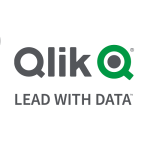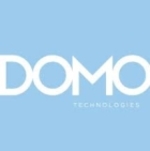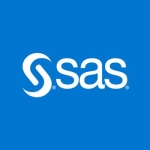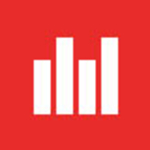What is our primary use case?
We are into the distribution of licenses, and we also have a services arm that takes care of the implementation.
Our customers use it for different use cases, such as fleet management, HR analytics, and retail analytics. They also use it for forecasting and predictive modeling. In the EMEA region, the analytics market isn't very mature. Therefore, many customers just restrict themselves to basic statistics in Tableau. At the most, they go for the predictive functionality, which is inbuilt in Tableau.
Its deployment depends on the use case. Some customers use it on the cloud, which is Tableau Online, and some of them go for Tableau Server, which is on-premises.
What is most valuable?
Our customers love the visual capabilities on top of it and the ability to explain and get the required data. There is no other product like Tableau in the business intelligence and analytics space.
What needs improvement?
Tableau is an end-to-end analytics platform, and it is doing a pretty good job in terms of connecting to the data and analyzing it. It can, however, do better in terms of data management and the ETL features, which are not on the advanced analytics or machine learning side. Tableau Prep is where users would want to see more advancements. They can improve Tableau Prep, which is an analytic platform tool for data cleansing. People who work with data spend most of their time curating the data. Cleaning up the data and getting it ready for analysis is what takes the most time. If Tableau can invest more time in improving the Tableau Prep platform, it would be great.
Previously, Tableau didn't have the functionality for writing to a database. So, you couldn't really alter the database tables and write to your database, but they fixed that in one of the very recent releases. However, it isn't really advanced and should be improved.
For how long have I used the solution?
I have been using Tableau for three years.
What do I think about the stability of the solution?
With respect to stability as a performance-driven metric, it is wonderful. Tableau is being used by one of the biggest gaming companies. Stability has mostly got to do with:
- Connectivity to your different data and database platforms
- The amount of data that you're dealing with
The Tableau platform can handle both of these because there is no limit per se in terms of the data size. However, a big fee is a challenge for everybody, and there is no escape from it.
Tableau has recently acquired Hyper, which speeds up the performance. Hyper is also something that Facebook uses. Therefore, when it comes to stability, it is one of the best solutions in the market. You don't need to worry about it.
If there are some glitches because a huge amount of data is coming in, there is an inbuilt performance monitoring option in Tableau where it actively monitors every user click on the platform. It will show you the results on the fly and tell you the part of your dashboarding or activity that is consuming the most memory. This way, you can optimize its performance.
What do I think about the scalability of the solution?
It is scalable. The beauty of this product is that it is for everyone. Tableau is a good fit for small enterprises to large enterprises. It can also be used in small departments of a company. The mission of Tableau is to help people see and understand data. So, it is not only for the IT people who understand the technicality of it. It is end-user-centric, and therefore, everybody can use it. It can be used by the marketing, finance, credit, and sales departments. The developers, data scientists, statisticians, and other people can also use it. It is for everyone.
You can scale it vertically or horizontally, or you can go both ways. You can have a single node configuration and add more RAM or more memory to the same node, or you can have a multi-node configuration. Both are supported. You can add nodes depending on the number of users who want to consume the analytics.
How are customer service and technical support?
I am not completely aware of it because I mostly handle pre-sales, but I do know that you can raise a support ticket with Tableau very easily. They have 24/7 support, and the priority of your use case depends on the agreement or the contract that you have with Tableau. There is Tier 1, 2, and 3 support.
Which solution did I use previously and why did I switch?
I have used SQL on different platforms. I have also worked on Python and R to generate plots. I can't stress enough on the fact that as compared to other solutions, Tableau is much easier, clearer, and more intuitive while using your data. You can actually see every bit of your data. They are able to achieve their mission and help people see and understand data.
How was the initial setup?
Its initial setup is very easy because Tableau has a new graphical user interface, and there is no need for you to script or code your installation process. It only takes a day to set up everything, and it does most of the configuration on its own. It is a very easy process.
In terms of maintenance, there are product upgrades that get released every quarter. It has quarterly upgrades and updates because it is enhanced so rapidly. They spend 25% of their annual revenue on R&D. They have constant interaction with its broad community, and they constantly take in user feedback. If there is a maintenance requirement or some issue with the product, most of the time, it automatically gets resolved in the next upgrade.
What's my experience with pricing, setup cost, and licensing?
Tableau has core-based and user-based licensing, and it is tied to scalability. The core-based licensing is about you buying a certain number of cores, and there is no restriction on the number of users who can use Tableau. The restriction is only on the number of cores. In user-based subscription licensing, there is a restriction on the number of users. Big companies and government organizations with a lot of users typically go for core-based licensing.
User-based subscription licensing is a more common model. It has user roles such as creator, explorer, and viewer. A creator is someone who does the groundwork or development work. An explorer is someone who is into middle management but is not technically savvy, such as a category head. A viewer is like a typical decision-maker in senior management. For each role, Tableau is priced differently. The viewer role has the minimum price, and the creator role has the highest price. This pricing is available on their website. Everybody can see it.
What other advice do I have?
I would advise checking your minimum configuration. There is a specific hardware configuration that you need before installing the software, which varies based on your development, test, and production. You should also decide on whether you need Tableau Online or Tableau Server. Tableau Online supports most of Tableau Server functionalities, but there are some limitations for certain data connections and refreshes. This is something that you need to be aware of while choosing between Tableau Online and Tableau Server.
Sometimes, organizations that can spend or have a good budget just go for Tableau Online because they don't have to worry about maintenance and upgrades. You're already on the latest version, and everything is taken care of by Tableau. The trade-off is that sometimes you may not have your refreshes and connectivity in the widest section possible, which is something that you can do with Tableau Server, but it happens only in rare cases.
It is the best product at the moment. If you look at Gartner's report for BI and analytics, Tableau has been the leader for nine years in a row, which is a very big achievement. There is nothing else like it. You will see Microsoft above Tableau, but Microsoft provides a product suite, whereas Tableau is just BI and analytics. It is not an apple to apple comparison.
I would rate Tableau a nine out of ten.
Disclosure: My company has a business relationship with this vendor other than being a customer: Partner


















